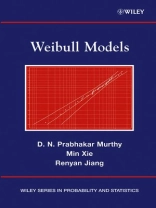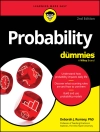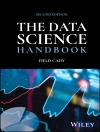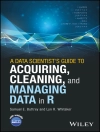A comprehensive perspective on Weibull models
The literature on Weibull models is vast, disjointed, andscattered across many different journals. Weibull Models is acomprehensive guide that integrates all the different facets of Weibull models in a single volume.
This book will be of great help to practitioners in reliabilityand other disciplines in the context of modeling data sets using Weibull models. For researchers interested in these modelingtechniques, exercises at the end of each chapter define potentialtopics for future research.
Organized into seven distinct parts, Weibull Models:
* Covers model analysis, parameter estimation, model validation, and application
* Serves as both a handbook and a research monograph. As ahandbook, it classifies the different models and presents theirproperties. As a research monograph, it unifies the literature andpresents the results in an integrated manner
* Intertwines theory and application
* Focuses on model identification prior to model parameterestimation
* Discusses the usefulness of the Weibull Probability plot (WPP)in the model selection to model a given data set
* Highlights the use of Weibull models in reliability theory
Filled with in-depth analysis, Weibull Models pulls together themost relevant information on this topic to give everyone fromreliability engineers to applied statisticians involved withreliability and survival analysis a clear look at what Weibullmodels can offer.
Daftar Isi
Preface.
PART A: OVERVIEW.
An Overview.
Taxonomy for Weibull Models.
PART B: BASIC WEIBULL MODEL.
Model Analysis.
Parameter Estimation.
Model Selection and Validation.
PART C: I AND II MODELS.
Type – I Models.
Type II Weibull Models.
Type III (a) Weibull Models.
Type III (b) Weibull Models.
Type III (c) Weibull Models.
Type III (d) Weibull Models.
PART – E: TYPES IV – VII MODELS.
Type IV Weibull Models.
Type V Weibull Models.
Type VI Weibull Models [Multivariate Models].
Type VII Weibull Models.
PART – F: WEIBULL MODELLING OF DATA.
Weibull Modelling of Data.
PART – G: APPLICATIONS IN RELIABILITY.
Modelling Product Failures.
Product Reliability and Weibull Models.
References.
Tentang Penulis
D. N. PRABHAKAR MURTHY, Ph D, is a Professor of Engineering and Operations Management at the University of Queensland in Brisbane, Australia. He received his Ph D in applied mathematics from Harvard University.
MIN XIE, Ph D, is an Associate Professor of Industrial and Systems Engineering at the National University of Singapore in Kent Ridge Crescent, Singapore. He received his Ph D in qualitytechnology from Linkoping University in Linkoping, Sweden.
RENYAN JIANG, Ph D, is a Professor of Engineering at the Changsha University of Science and Technology and is also affiliated withthe Department of Mechanical Industrial Engineering at the University of Toronto in Toronto, Ontario, Canada. He received his Ph D in mechanical engineering from the University of Queensland.












